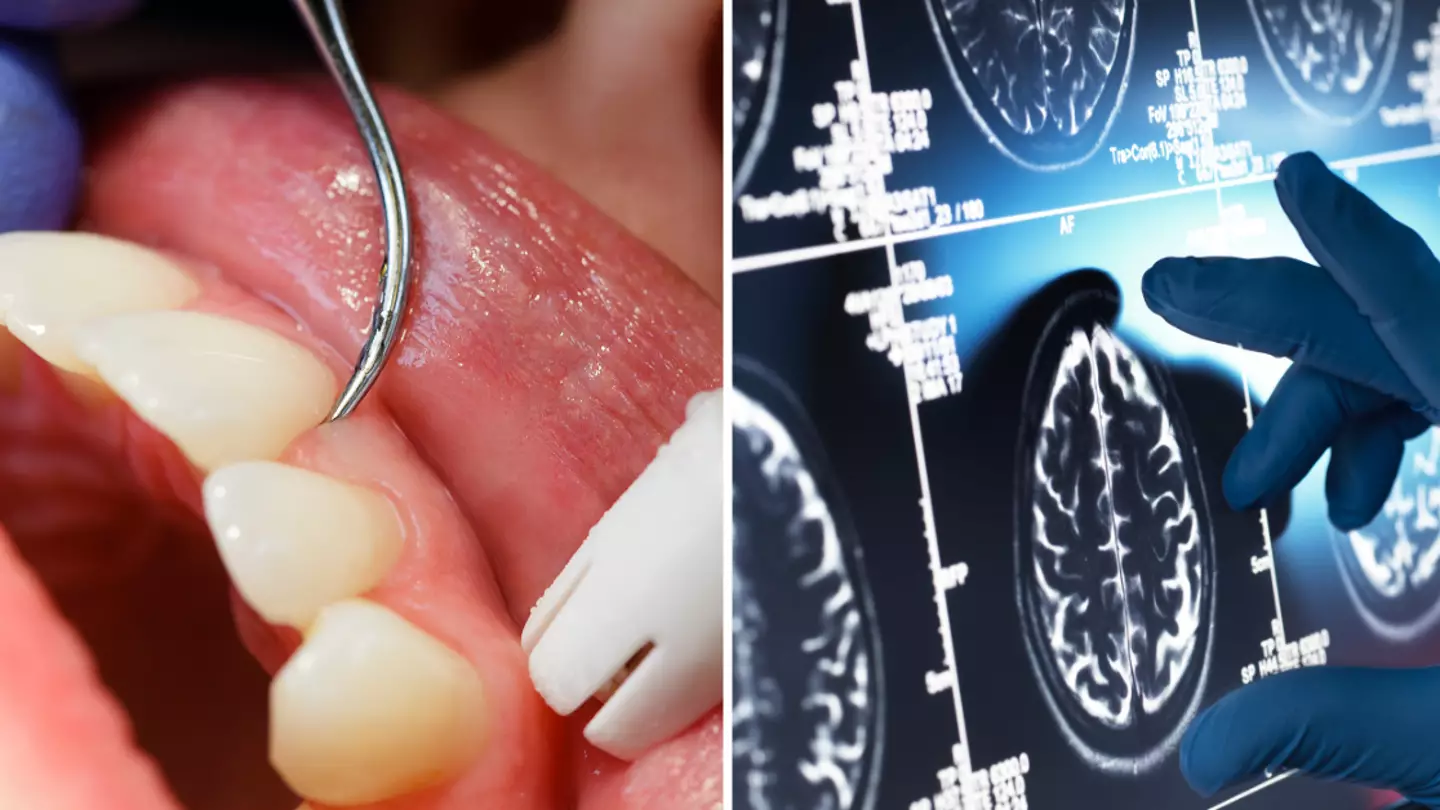
Anyone without dental insurance or those who don’t attend regular appointments with their hygienist are possibly at risk of developing dementia, according to scientific research.
Alzheimer’s disease is the leading cause of death in Britain - a statistic that worryingly hasn’t changed over the last decade, as per the Alzheimer’s Society.
The progressive brain disorder slowly destroys both memory and thinking skills, eventually rendering those with the condition unable to carry out even the simplest of tasks.
While the hallmark of Alzheimer's is an abnormal build-up of proteins in and around brain cells, scientists believe the dementia could be influenced by a combination of factors.
Advert

These could include, but are not limited to, genetics, age, heart health and lifestyle choices like smoking and drinking alcohol.
But experts also believe the risk of developing dementia could be higher in those with poor dental hygiene.
A 2019 paper, titled ‘Porphyromonas gingivalis in Alzheimer’s disease brains: Evidence for disease causation and treatment with small-molecule inhibitors’ was published in the Science Advances journal.
The research found that porphyromonas gingivalis, the keystone pathogen in chronic periodontitis (a type of gum disease), was identified in the brains of deceased Alzheimer’s disease patients.
Toxic proteases from the bacterium called gingipains were also identified in the brains of Alzheimer’s patients - an insight that led experts to believe that good oral hygiene could influence brain health.
It's a sober warning for those without dental insurance, the paper stated.
A further study published in the Neurology journal also found that gum disease could be linked with an increased risk of dementia.
US-based researchers discovered that three-quarters of a 4,559-strong cohort (aged between 45 and 64) had signs of dental problems.
After following the volunteers for two decades, they found 19 percent of the participants developed dementia.
Only 14 percent of those who had healthy gums and all their teeth at the start of the study developed dementia, compared to 23 percent of those without teeth who developed the condition, as per Alzheimer’s Research UK.
.jpg)
Basically, people who had severe gum disease had a slightly increased risk of developing memory problems.
However, as stated by Dr Sara Imarisio, Head of Research at Alzheimer’s Research UK, this research does not mean gum disease is a cause of dementia.
“Dementia is complex with strong evidence indicating that factors other than gum disease are also central to the development of the condition,” she explained.
“However, maintaining good dental health is an important part of maintaining a healthy lifestyle throughout your life.”
She added that by understanding potential risk factors underlying dementia - like potential poor dental health - scientists stand a greater chance of reducing the number of people developing the condition each year.
How to get rid of gum disease
Unfortunately, gum disease isn’t curable - so let this be ‘sobering warning’ for anyone who regularly forgets to floss.
The good news is that the condition is manageable with appropriate treatment.
Experts at Listerine write that regular dentist check-ups can help identify any problems with your oral health, so it’s worth booking in regularly.
Trips to the hygienist will also be worth your time, as they can pinpoint which parts of your mouth are being neglected
Brushing, flossing and swishing mouthwash twice daily can help reduce bacteria in your mouth to prevent gum disease from taking hold.
Listerine also stated that giving up smoking and eating a balanced diet may help decrease the risk of gum disease.
